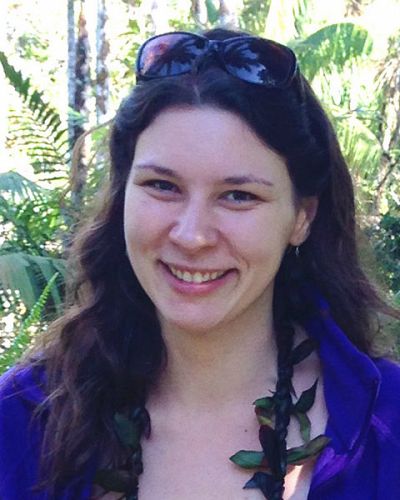
Lindsey Swierk, an assistant research professor of biology at Binghamton University, was recently appointed as associate director of research at the Amazon Conservatory for Tropical Studies (ACTS).
The ACTS is located in the Amazon rainforest, specifically the section within Iquitos, Peru. The site’s geographical location and its infrastructure, including an overarching high-altitude walkway system, provides an aerial perspective on the surrounding rainforest and the life it supports. The ACTS field station and canopy walkway is owned and maintained by Amazon Explorama Lodges, a network of lodges in Iquitos.
Swierk has entered a new position to further research at this site, which has been facilitating research focusing on species biodiversity, the impact of climate change on wildlife and plant life and forest mapping for the past 30 years. Pamela Bucur, leader of logistics and operations at ACTS, discussed the origin of the station.
“In the early 1990s, the Amazon was in the headlines because of massive deforestation and the emerging recognition that it is a critical global resource that we all depend upon,” Bucur wrote in an email. “The [ACTS] (Originally the ACEER) was conceived in 1991 to 1992 by a team of scientists and ecotourism professionals as an ideal spot for neotropical research and education.”
There has been a variety of research projects completed examining species’ biology at the ACTS, including some species not yet cataloged by science. Studies also explore habituating plants and their various uses, ecosystem services, predation, resource accessibility and many other aspects of the Amazon. Bucur said the ACTS plays an important role in supporting the Amazon rainforest’s future.
“The Amazon faces a grim future if we do not act to preserve it,” Bucur wrote. “Because ACTS is based in one of the most biologically diverse forests in the world, we are in an ideal position to support tropical research, educational initiatives, classes, workshops and sustainable development projects in the Peruvian [Amazonia]. By providing these opportunities, we aim to increase the body of knowledge about the Amazon — its structure, function and biodiversity — in order to do our part to help save it.”
Projects at the ACTS currently often focus on the effect of climate change and its impacts on the Amazon, including through education and conservation initiatives. Many future research initiatives at the ACTS will now be advanced by Swierk.
“As associate director of research, I’ll design and lead long-term projects at ACTS and collaborate with researchers around the world to better understand this remarkable forest,” Swierk wrote in an email. “We’re hoping to improve infrastructure of the site and accessibility of public data in the years to come.”
As a behavioral ecologist and herpetologist, Swierk has participated in research at the ACTS beginning in 2008, and has participated in various projects in which she has produced publications. Bucur discussed Swierk’s impact thus far, and what her new role means for the ACTS.
“The appointment of Swierk as the new associate director of research for ACTS has been a game changer,” Bucur wrote. “She has led the effort to update our research permission protocols and guidelines. She has created our new searchable research database and is actively working to establish ACTS as premier field station in the Amazon.”
Swierk has assisted developing ACTS’ means of communication through contributing to the creation of a website and social media accounts. She is also leading collaborative projects with the Morpho Institute — which promotes education in conservation efforts of the Amazon — and visiting educators and researchers from the United States.
As a member of the biology department Swierk also leads research opportunities at the University, including through founding the Swierk Organismal Ecology Lab, housed in Science III, which focuses on lizards and frogs and their behaviors and adaptive values.
Taylor Allen, a freshman majoring in biology, described the personal significance Swierk’s designation has on her.
“I’m a biology major because I care deeply about all aspects of science and scientific research, and I’m pleased to be extending my love for science at [BU],” Allen wrote in an email.” It makes me proud of [BU] and of the people at [BU], knowing that her background led her to accomplish great tasks.”
Jake Caspi, a freshman majoring in biology, said he supported the research undertaken by the ACTS.
“Any research that is associated with biological conservation makes me happy given that we are in a state of mass extinction due to climate change,” Caspi wrote in an email.
Looking ahead, Swierk said she hopes to continue spreading knowledge about the rainforest.
“One of my favorite aspects of this position is that I’m able to introduce other people to one of the most mind-blowing ecosystems in the world (at least in my opinion!),” Swierk wrote. “In addition to continuing my own research while at ACTS and our ACTS long-term projects, I look forward to being able to make others aware of the importance of the Amazon globally.”


